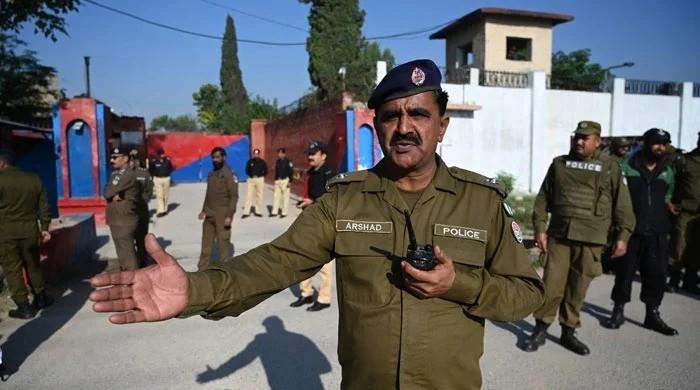Summary:
- Muhammad Akram, former deputy superintendent of Adiala Jail, has been arrested for allegedly helping imprisoned PTI founder Imran Khan communicate secretly from prison.
- Akram was dismissed from his position in June, and his replacement was assigned as Khan’s security supervisor.
- Imran Khan remains imprisoned on multiple charges, with his release prospects hindered by ongoing legal issues and fresh charges.
In a dramatic development at Rawalpindi’s Adiala Jail, former deputy superintendent Muhammad Akram has been arrested on allegations of aiding imprisoned Pakistan Tehreek-e-Insaf (PTI) founder Imran Khan. The arrest, reported by Geo News, follows accusations that Akram facilitated covert communication for Khan while he was in custody.
Akram, who was removed from his post on June 20, had his duties transferred to Deputy Superintendent Judicial Tahir Siddique Shah. This administrative change came as part of an effort to bolster security and oversight. Following his removal, Akram was ordered to report to the Prisons Department in Lahore, and he is now under scrutiny by law enforcement agencies.
Sources reveal that Akram allegedly relayed messages for Khan secretly, raising serious concerns about prison security and the integrity of the legal process. The Inspector General of Prisons, Punjab, has been notified of Akram’s arrest, and a departmental investigation is underway. Depending on the outcome, Akram could face significant disciplinary action.
Imran Khan, who has been imprisoned for over a year on various charges—including the Toshakhana case, the cipher case, and allegations of an un-Islamic marriage—has faced numerous legal challenges. His wife, Bushra Bibi, has also been in detention for several months. Although there were hopes for their release earlier in the year, these were thwarted when the National Accountability Bureau (NAB) detained them on new charges related to state gifts.
The prospects for Khan’s release have further diminished following his arrest in connection with the May 9, 2023, riots. These riots erupted after Khan’s detention at the Islamabad High Court, with protesters attacking government and military installations. Khan’s ongoing legal battles and the latest developments in his case suggest that his path to freedom remains fraught with obstacles.





